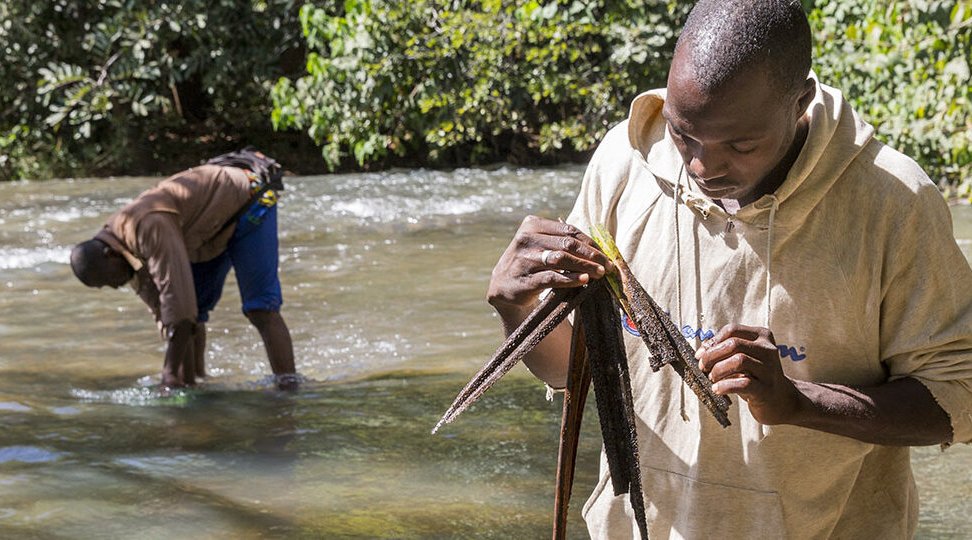What is Bilharzia (schistosomiasis)?
Bilharzia (also known as schistosomiasis or snail fever) affects people in over 50 endemic countries across Asia, Africa and parts of South America.
Bilharzia is an illness that develops when people come into contact with water contaminated by certain snails that carry disease-causing parasites. These parasites can penetrate through a person’s skin and move through the body.
Infection primarily affects the urinary or intestinal system, causing chronic ill health and, in some cases, death. Lack of access to safe water and hygiene facilities, and water-based activities (such as swimming and fishing) make school-age children the most vulnerable, with infection responsible for malnutrition, absenteeism and possible impaired intellectual development.
Children and adults suffering from persistent and severe bilharzia infections are also likely to have chronic and irreversible diseases later in life, such as scarring (fibrosis) of the liver, bladder cancer or kidney failure.
In women, bilharzia can lead to female genital schistosomiasis (FGS) which can cause complications in pregnancy, infertility, and triple the risk of contracting HIV.
Key stats
-
Around 250 million
people require treatment for bilharzia
-
95% of school-aged children
that require preventive treatment live in Africa
-
Over 50 countries
require preventive treatment for bilharzia
Emelia from Mupfure area of Zimbabwe, shares her story of bilharzia and how accessing treatment and medication changed her life.
Silvanus from Tanzania tells his story of schistosomiasis, how it affected his life and his work, but also how he received treatment and the Drs who fought for him.
Martha, who lives in Harare, shares her story of how a routine visit to the doctor for painkillers alerted her to historic bilharzia damage.
Status of elimination (interruption of transmission) of bilharzia as a public health problem, 2022
People receiving preventive chemotherapy for bilharzia
Since the London Declaration was signed in 2012 and partners committed to defeating neglected tropical diseases, the number of people receiving preventive chemotherapy for bilharzia has increased considerably.
Network partners
Global Schistosomiasis Alliance
The Global Schistosomiasis Alliance (GSA) is an all-inclusive coalition to mobilise the growing momentum to control and eliminate schistosomiasis.
Unlimit Health
Unlimit Health (previously known as SCI Foundation) is an international organisation working to end parasitic disease.
